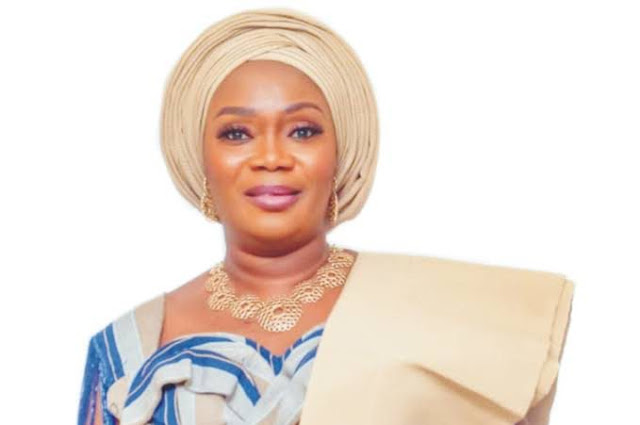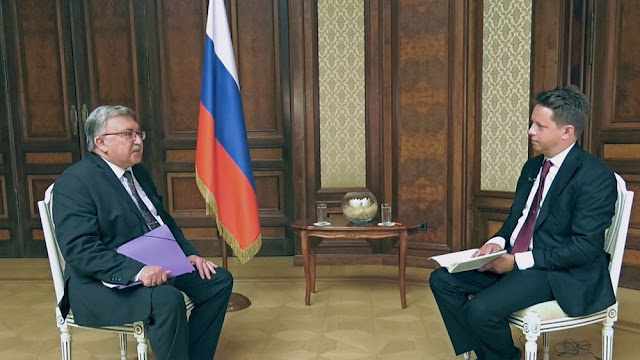In a remarkable display of compassion and commitment to educational advancement, Princess Adetokunbo Animashaun, a prominent philanthropist and community leader, has extended a lifeline to 200 indigent students in Nigeria by distributing free General Certificate of Education (GCE) examination forms. This initiative, which has garnered widespread praise, underscores her unwavering dedication to uplifting underprivileged communities and fostering opportunities for academic success. By removing financial barriers to education, Princess Animashaun is paving the way for a brighter future for these students, enabling them to pursue their dreams and contribute meaningfully to society.
The Significance of the GCE in Nigeria
The General Certificate of Education (GCE), administered by the West African Examinations Council (WAEC), is a critical academic milestone for students in Nigeria and other West African countries. The examination serves as an alternative or supplementary qualification to the Senior School Certificate Examination (SSCE), providing students with an opportunity to obtain credentials necessary for higher education or vocational training. For many students, particularly those from low-income backgrounds, the cost of registering for the GCE can be a significant hurdle, often forcing them to postpone or abandon their educational aspirations.
In Nigeria, where economic challenges and systemic inequalities continue to limit access to quality education, initiatives like Princess Animashaun’s are vital. The GCE is more than just an examination; it represents a gateway to opportunities such as university admission, scholarships, and employment prospects. By covering the registration fees for 200 indigent students, Princess Animashaun is addressing a critical need and demonstrating the transformative power of philanthropy.
A Vision for Empowerment
Princess Adetokunbo Animashaun has long been recognized for her efforts to empower marginalized groups, particularly youths and women, through education, skills development, and community support programs. Her decision to sponsor GCE forms for 200 students is a continuation of her mission to create a more equitable society where every individual has the chance to succeed, regardless of their socio-economic background.
The initiative was launched with a clear objective: to identify deserving students who, due to financial constraints, might otherwise be unable to participate in the GCE. By targeting indigent students, Princess Animashaun is addressing one of the root causes of educational inequality—poverty. Her gesture not only provides immediate relief to these students but also sends a powerful message about the importance of collective responsibility in uplifting the less privileged.
The Selection Process: Ensuring Fairness and Transparency
To ensure that the free GCE forms reached the most deserving candidates, Princess Animashaun and her team implemented a rigorous and transparent selection process. Community leaders, school administrators, and local organizations were involved in identifying students who demonstrated academic potential but lacked the financial means to register for the examination. This collaborative approach ensured that the initiative was inclusive and reached students from diverse backgrounds across various communities.
The selection criteria prioritized students who had shown resilience and determination in their studies despite facing economic hardships. For many of these students, the opportunity to sit for the GCE represents a second chance to overcome past academic setbacks, such as failing to meet the requirements for university admission in their initial SSCE attempts. By providing free registration, Princess Animashaun is giving these students the chance to rewrite their academic narratives and pursue their long-term goals.
A Ceremony of Hope and Inspiration
The distribution of the free GCE forms was marked by a heartfelt ceremony that brought together beneficiaries, their families, community leaders, and representatives from Princess Animashaun’s foundation. The event was not only a moment to hand out the forms but also an opportunity to inspire and motivate the students to take full advantage of this opportunity.
During the ceremony, Princess Animashaun addressed the students, emphasizing the importance of education as a tool for personal and societal transformation. She urged them to approach their studies with dedication and to see the GCE as a stepping stone to greater achievements. “Education is the key to unlocking your potential,” she said. “No matter where you come from or the challenges you face, with hard work and determination, you can achieve greatness.”
Her words resonated deeply with the students, many of whom expressed gratitude for the opportunity to pursue their academic dreams without the burden of financial constraints. The ceremony also featured motivational talks from educators and successful professionals who shared their own stories of overcoming adversity through education. These stories served as a source of inspiration for the beneficiaries, reinforcing the idea that their current circumstances do not define their future.
The Broader Impact of the Initiative
The distribution of free GCE forms to 200 indigent students is more than a one-time act of charity; it is a strategic intervention with far-reaching implications. By enabling these students to participate in the GCE, Princess Animashaun is helping to break the cycle of poverty that often traps families across generations. Education is widely recognized as one of the most effective tools for social mobility, and this initiative is a step toward empowering young people to create better lives for themselves and their communities.
Moreover, the initiative has a ripple effect that extends beyond the immediate beneficiaries. By investing in the education of these students, Princess Animashaun is contributing to the development of a skilled and educated workforce that can drive Nigeria’s economic growth. Educated individuals are more likely to secure stable employment, contribute to their communities, and inspire others to pursue their own educational goals.
The initiative also highlights the importance of public-private partnerships in addressing educational challenges. While the Nigerian government has made efforts to improve access to education, the scale of the challenge requires the involvement of individuals, organizations, and philanthropists like Princess Animashaun. Her work serves as a model for other well-meaning individuals and institutions to follow, demonstrating that targeted interventions can make a significant difference in the lives of young people.
Education as a Catalyst for Change
Education is a fundamental human right and a cornerstone of sustainable development. In Nigeria, however, millions of children and youths face barriers to education, including poverty, lack of infrastructure, and inadequate funding for schools. According to UNESCO, Nigeria has one of the highest numbers of out-of-school children in the world, with over 10 million children not attending school. For those who do manage to enroll, additional challenges such as examination fees and the cost of learning materials can prevent them from completing their education.
Princess Animashaun’s initiative directly addresses one of these barriers by covering the cost of GCE registration for 200 students. While this number may seem modest in the context of Nigeria’s population, the impact on the lives of these students and their families is profound. For many of the beneficiaries, this opportunity represents a chance to break free from the constraints of poverty and build a brighter future.
The initiative also aligns with broader national and international goals for education. The United Nations’ Sustainable Development Goal (SDG) 4 calls for inclusive and equitable quality education for all by 2030. By supporting indigent students, Princess Animashaun is contributing to this global agenda and helping Nigeria move closer to achieving universal access to education.
Challenges and Opportunities in Nigerian Education
To fully appreciate the significance of Princess Animashaun’s initiative, it is important to consider the broader context of education in Nigeria. The country’s education system faces numerous challenges, including inadequate funding, teacher shortages, and disparities in access between urban and rural areas. In many communities, families struggle to afford basic school supplies, let alone examination fees, which can cost thousands of naira per student.
The GCE, in particular, is a critical examination for students who need to improve their academic qualifications. For some, it is a second chance to pass subjects they failed in the SSCE, while for others, it is an opportunity to gain the credentials needed for specific career paths. However, the cost of registration—often equivalent to a month’s income for low-income families—can be prohibitive. By covering these costs, Princess Animashaun is removing a significant barrier and enabling students to take a crucial step toward their goals.
At the same time, the initiative highlights opportunities for further action. While providing free GCE forms is a commendable step, there is also a need for comprehensive support to ensure that students succeed in the examination. This could include access to study materials, tutoring, and mentorship programs to help students prepare effectively. Princess Animashaun’s foundation could consider partnering with educational organizations to provide these additional resources, ensuring that the students not only register for the GCE but also perform well.
Voices of the Beneficiaries
The true impact of Princess Animashaun’s initiative is best captured through the voices of the students who have benefited from it. For many of them, this opportunity is a lifeline that restores hope and opens doors to a brighter future.
One beneficiary, 18-year-old Aisha Mohammed, shared her story during the distribution ceremony. Aisha, who comes from a low-income family in a rural community, had been unable to register for the GCE due to financial constraints. “I thought my dream of going to university was over,” she said. “But thanks to Princess Animashaun, I now have a chance to take the GCE and pursue my ambition of becoming a nurse.”
Another beneficiary, 19-year-old Chukwudi Okeke, expressed similar gratitude. “My parents couldn’t afford the GCE registration fee, and I was afraid I would have to give up on my education,” he said. “This opportunity means everything to me. I’m going to study hard and make the most of it.”
These stories reflect the transformative power of Princess Animashaun’s initiative. For these students, the free GCE forms are not just pieces of paper; they are tickets to a better future, offering hope and opportunity in the face of adversity.
Princess Animashaun: A Champion of Social Good
Princess Adetokunbo Animashaun’s philanthropy extends beyond this single initiative. Over the years, she has been involved in numerous projects aimed at improving the lives of Nigerians, particularly in the areas of education, healthcare, and women’s empowerment. Her foundation has supported scholarships, vocational training programs, and community development projects, earning her a reputation as a tireless advocate for social change.
Her decision to focus on education reflects her understanding of its role as a catalyst for transformation. By investing in the education of indigent students, she is not only helping individuals but also contributing to the long-term development of Nigeria. Her work serves as an inspiration to other philanthropists, business leaders, and community members to take action and support initiatives that uplift the less privileged.
The Role of Philanthropy in Nigeria’s Development
Philanthropy has a critical role to play in addressing Nigeria’s developmental challenges. While the government bears the primary responsibility for providing public services like education, philanthropists like Princess Animashaun can fill critical gaps and complement government efforts. Her initiative demonstrates the power of individual action to create meaningful change, particularly in communities where resources are scarce.
Moreover, her work highlights the importance of targeting interventions to address specific needs. By focusing on indigent students, she is ensuring that her resources have the greatest possible impact. This targeted approach can serve as a model for other philanthropists and organizations looking to make a difference in Nigeria’s education sector.
Looking Ahead: Sustaining the Impact
While the distribution of free GCE forms is a significant achievement, sustaining the impact of this initiative will require ongoing efforts. Princess Animashaun and her team could consider expanding the program to reach more students in future years, potentially by partnering with corporate sponsors or international organizations. Additionally, providing follow-up support, such as exam preparation classes or mentorship, could help ensure that the beneficiaries succeed in their examinations and beyond.
There is also an opportunity to advocate for systemic changes in Nigeria’s education system. By sharing the success of this initiative with policymakers, Princess Animashaun could encourage the government to implement policies that reduce financial barriers to education, such as subsidizing examination fees for low-income students.
Conclusion
Princess Adetokunbo Animashaun’s initiative to distribute free GCE forms to 200 indigent students is a powerful example of how philanthropy can transform lives. By removing financial barriers to education, she is empowering young people to pursue their dreams and build a better future for themselves and their communities. Her work serves as a reminder that education is a fundamental right and a key driver of social and economic progress.
As Nigeria continues to grapple with challenges in its education system, initiatives like this one offer hope and inspiration. Princess Animashaun’s commitment to uplifting the less privileged is a call to action for others to join in the effort to create a more inclusive and equitable society. Through her generosity and vision, she is not only changing the lives of 200 students but also laying the foundation for a brighter future for Nigeria.






